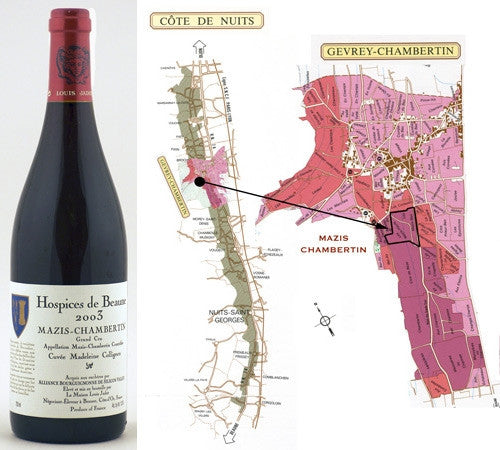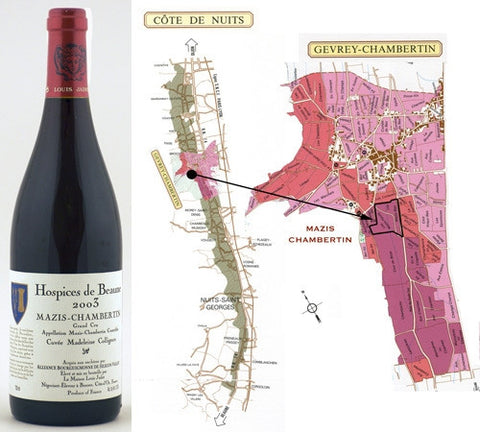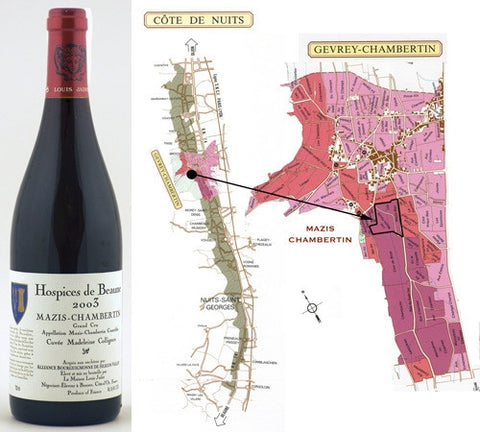
Louis Jadot
Hospices de Beaune, Mazis-Chambertin, Cuvée Madeleine Collignon, Grand Cru 2003, 3.0L
Regular price
$650.00
Story of the Cuvée
Mazis-Chambertin lies at the northern end of the grand cru slope, directly adjacent to Clos-de-Bèze and below Ruchottes. The name "Mazis," from the word "mas," which later became "maison," or "house," refers to the cluster of houses which were replaced by vines in the late 1300s. Mazis-Chambertin is comprised of two nearly equal parcels of roughly 11.25 acres each, Les Mazis-Hauts and Les Mazis- Bas, producing an average 3,000 cases of wine annually. Next to Chapelle-Chambertin, Mazis is the most feminine of Gevrey's grands crus, a wine of exceptional delicacy.
This magnificent plot of Grand Cru vineyard was donated by Jean Collignon in 1976, and named in memory of his mother. The vines lie at the heart of the hillside, on the same contours as its immediate neighbor, Chambertin Clos de Bèze.
More than two thirds of the Cuvée come from vines planed in 1947. This no doubt contributes significantly to the remarkable fruit density and structure of the wine, to its silky tannins and to its length of aftertaste, which are consistently exceptional.
Mazis-Chambertin lies at the northern end of the grand cru slope, directly adjacent to Clos-de-Bèze and below Ruchottes. The name "Mazis," from the word "mas," which later became "maison," or "house," refers to the cluster of houses which were replaced by vines in the late 1300s. Mazis-Chambertin is comprised of two nearly equal parcels of roughly 11.25 acres each, Les Mazis-Hauts and Les Mazis- Bas, producing an average 3,000 cases of wine annually. Next to Chapelle-Chambertin, Mazis is the most feminine of Gevrey's grands crus, a wine of exceptional delicacy.
This magnificent plot of Grand Cru vineyard was donated by Jean Collignon in 1976, and named in memory of his mother. The vines lie at the heart of the hillside, on the same contours as its immediate neighbor, Chambertin Clos de Bèze.
More than two thirds of the Cuvée come from vines planed in 1947. This no doubt contributes significantly to the remarkable fruit density and structure of the wine, to its silky tannins and to its length of aftertaste, which are consistently exceptional.




